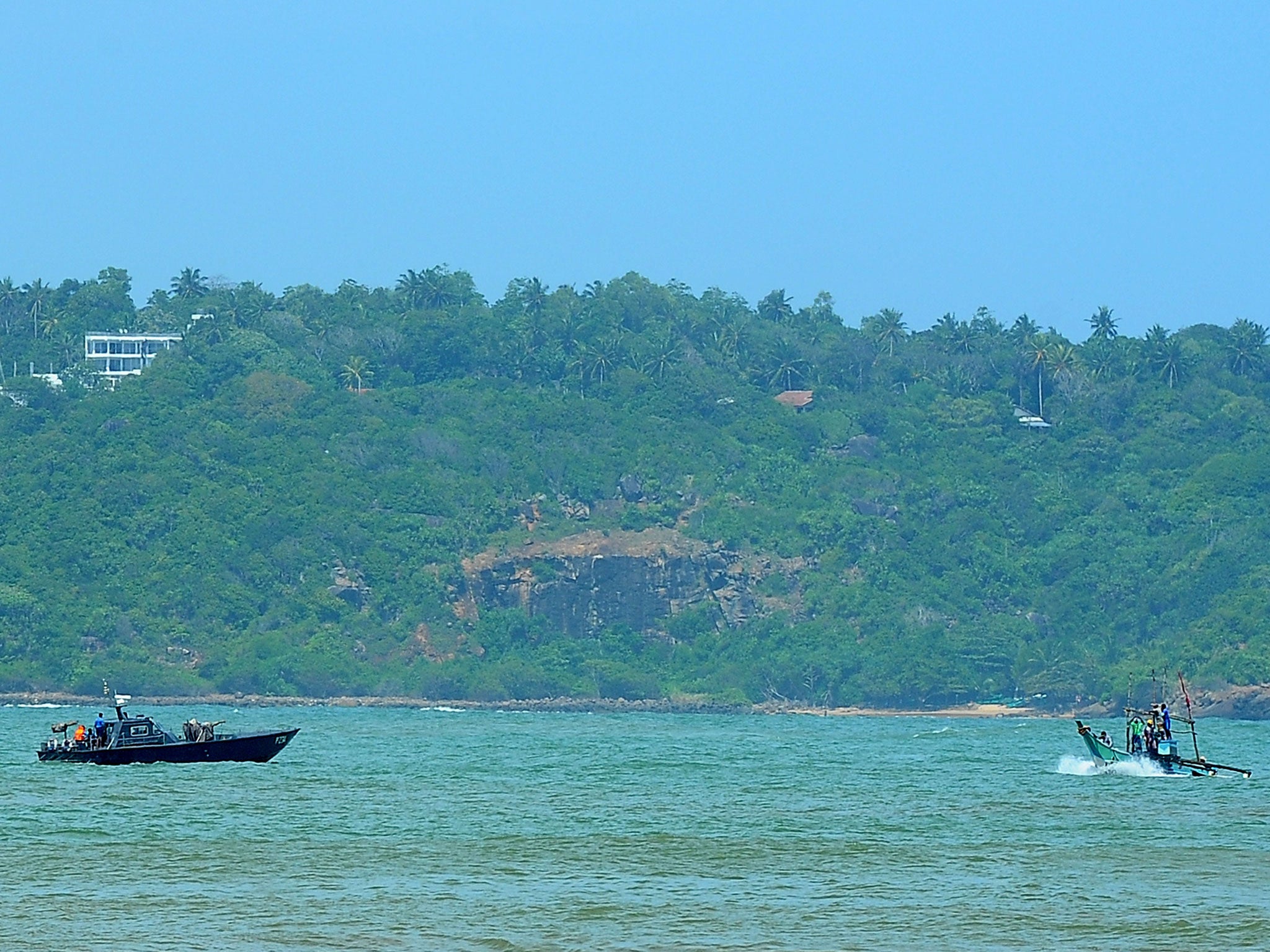Australia must give 72 hours' notice before returning 153 Sri Lankan asylum seekers
Tony Abbott's government has already faced international condemnation for sending back a group of 41 asylum seekers to Sri Lanka

The government of Australia has promised it will not return 153 asylum seekers to Sri Lanka without providing 72 hours notice – an undertaking activists said was a minor victory in a long-running battle.
The government of Prime Minister Tony Abbott told an emergency court hearing in Sydney the asylum seekers would for now remain in Australian custody, on the high seas.
After days of silence on the fate of around 200 Sri Lankan asylum-seekers reportedly intercepted by the Australians last month, the government on Monday said 41 of them had been assessed and transferred to the Sri Lankan authorities at sea.
In a statement, Australia’s immigration minister Scott Morrison said the 41 Sri Lankans had been intercepted by personnel from the border patrol off the Cocos Islands in the Indian Ocean in late June. After an assessment at sea rejected their claims for asylum, they were handed over on Sunday to the Sri Lankan authorities off the Sri Lankan port of Batticaloa.
On Tuesday, a hearing of the High Court in Sydney was adjourned to allow the government to meet with representatives for 153 asylum seekers from a second boat – including women and children – to discuss what should happen to them.
A lawyer for the Australian government told the court the group was intercepted 12 miles from Australia and outside the country’s migration zone, according to the Reuters news agency. They are now on an Australian navy vessel on the high seas, the lawyer said.
Australia has for several years been toughening its stance towards asylum seekers and migrants, and implementing a policy of turning their boats around. A number of boats have capsized on their way to Australia and dozens of people have drowned.
Yet this is the first time during so-called Operation Sovereign Borders the government has admitted that it made an assessment of claims while still on the ocean. The move has been widely criticised and there are fears that the asylum seekers – many of whom claim to be members of Sri Lanka’s Tamil minority – could face persecution.
“The government has been trying to hide its mistreatment and violation of human rights behind a cloak of secrecy,” Ian Rintoul, of the Refugee Action Committee Sydney, told The Independent.
He claimed Mr Abbott was trying to halt his declining approval ratings by playing tough on immigration. “Sri Lanka is known for its violations of human rights. If we can stop that, we are happy,” he added.
Last week a flurry of reports emerged that two boats of Sri Lankan refugees making their way towards Australia had been intercepted by the Australians.
It is understood that the boat containing 41 people had come directly from Sri Lanka while the second vessel, containing 153 people, had set off from Pondicherry, on the southern Indian coast.
It is thought many of those on board were Sri Lankan Tamils who were living in refugee camps in the Indian state of Tamil Nadu. Others may have crossed the Palk Strait to join the boat in southern India. The Indian government has yet to comment on the issue.
Australia says it has been confronted by a flood of would-be migrants from Sri Lanka. Many of them are members of the country’s Tamil minority. In the final stages of the country’s civil war, which ended five years ago, many Tamil civilians suffered at the hands of both the Sri Lankan armed forces and the Tamil rebel group, the Liberation Tigers of Tamil Eelam.
The Australians said only one of the forty-one people on board the first boat was found to have a possible case for asylum. Having been given the option of being transferred to Australia’s detention camps in Nauru or Papua New Guinea for further processing, the person opted to be returned to Sri Lanka.
Activists say there is the risk that some of those handed over could face mistreatment.
“The Australian government knows that torture, disappearances and rape prevail in Sri Lanka,” said Suren Surendiran, of the Global Tamil Forum. “Instead of being on the side of the rest of the international community in fixing the root causes which drive people to take to unsafe boats in rough seas, Australia has chosen to breach its own international obligations.”
On Monday evening, it was reported that in the coming days, the 41 Sri Lankans were to be brought before a court in Galle and charged with leaving the country illegally. “The sentence for those proved to have left illegally is two years of rigorous imprisonment and a fine,” police spokesman Ajith Rohana told Reuters.
Last week, the United Nations refugee agency, UNHCR, issued a statement expressing its “profound concern” that Australia was processing asylum seekers at sea rather than bringing them ashore to assess their claims.
“UNHCR considers that individuals who seek asylum must be properly and individually screened for protection needs,” it said. “International law prescribes that no individual can be returned involuntarily to a country in which he or she has a well-founded fear of persecution.“
In a statement on Monday, 53 Australian legal scholars said Australia's policy raised the risk of forcing people back to their place of origin, where many could face persecution. They said that would breach Australia’s obligations under international refugee and human rights law.
Join our commenting forum
Join thought-provoking conversations, follow other Independent readers and see their replies
Comments